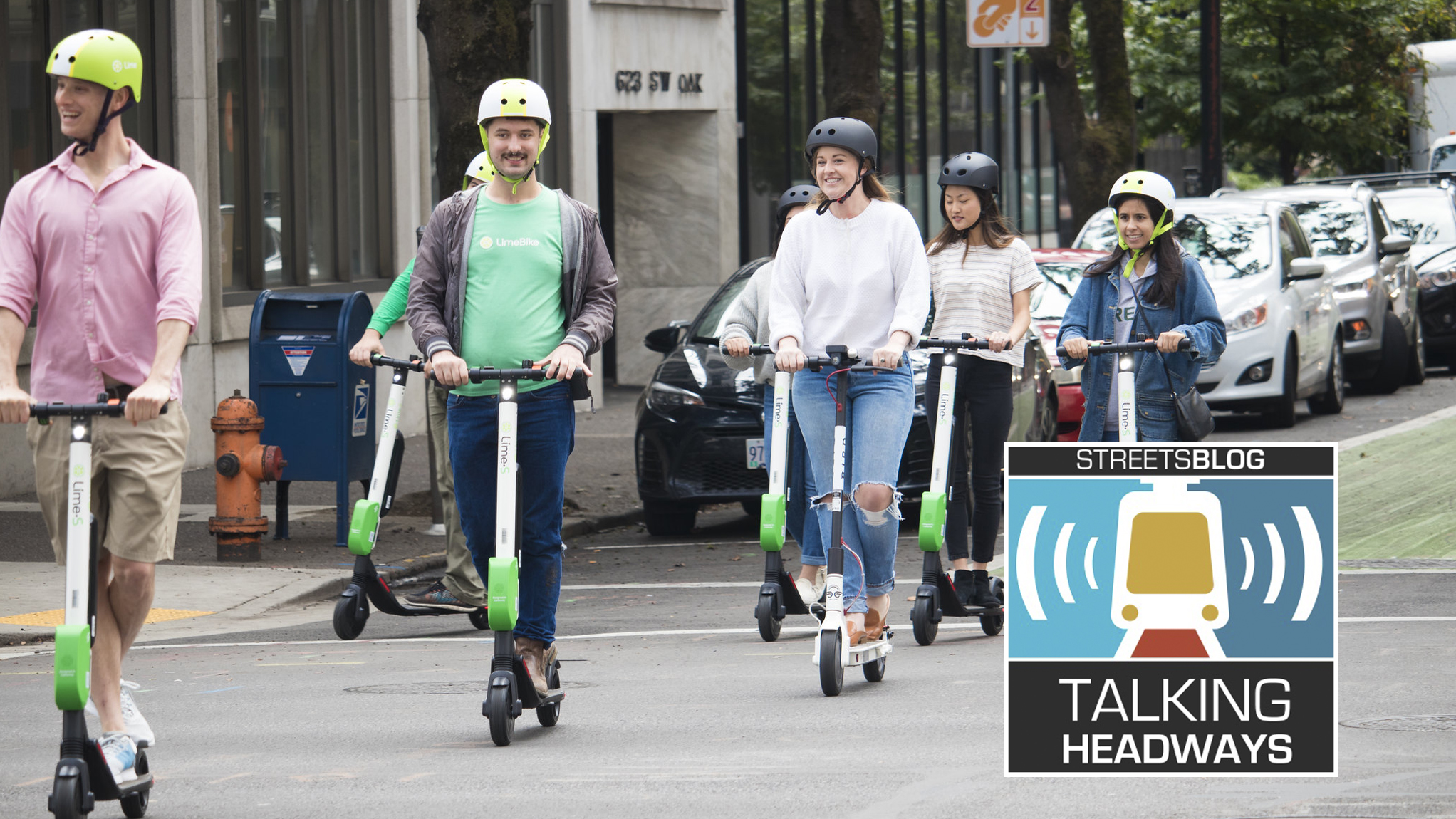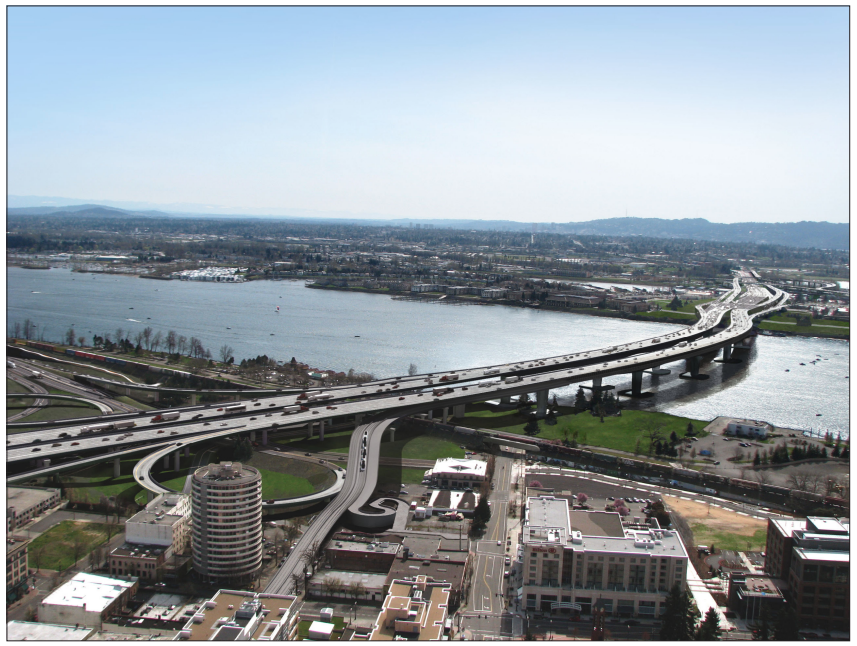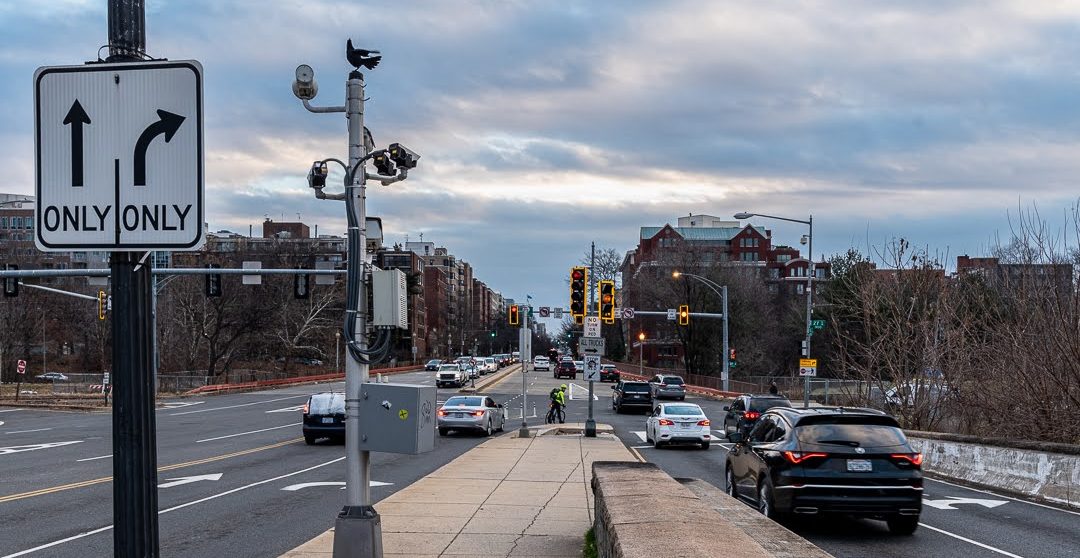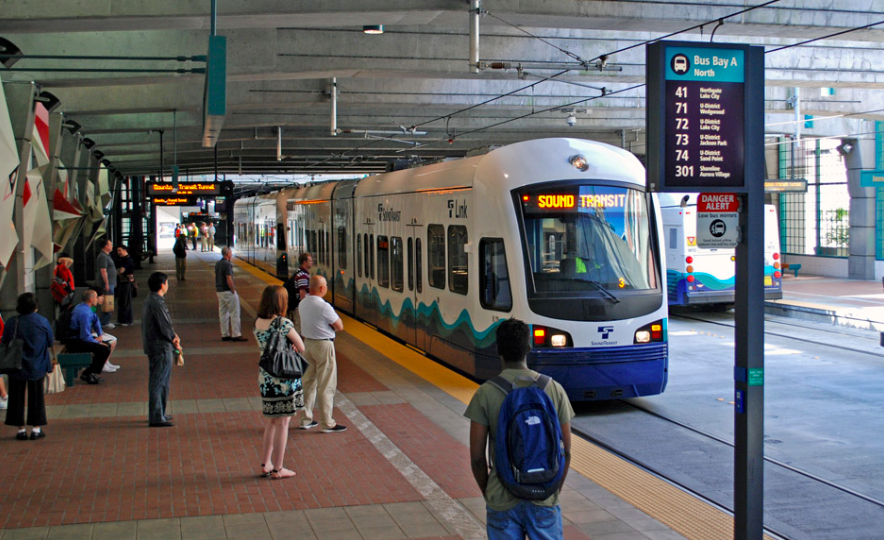We're going to see a lot of stories about Donald Trump and infrastructure in the next few months, and this reporting will be heavily influenced by a message that has been honed and perfected by the American Society of Civil Engineers. It will be important to see through these arguments and view the Trump infrastructure plan with clear eyes.
Already, leading Congressional Democrats like Chuck Schumer and Nancy Pelosi are failing to do that. They are saying they want to work with Trump on "infrastructure," reflecting a common viewpoint that infrastructure is a bipartisan issue.
This situation is dangerous for several reasons, including the likelihood that the transportation components of Trump's infrastructure plan will be heavily tilted toward roads, as well as the broader implications of handing Trump's overtly bigoted and notoriously corrupt inner circle a large pool of new financial resources, which can be used to reward cronies and punish adversaries.
America does have very real infrastructure needs, and there's a lot of truth to the general sentiment that things like roads, transit networks, and water systems are in need of repair. But these needs tend to arise as much from the way public agencies spend the funds at their disposal -- allocating too much to road expansion, not enough to maintenance, for instance -- as they do from a lack of funding.
Key to the view that Schumer and Pelosi espouse is the messaging of the American Society of Civil Engineers, whose infrastructure "Report Card" claims the U.S. needs to spend trillions of dollars more on infrastructure. The ASCE report card is widely repeated in media reports, and Hillary Clinton even linked to the document in her infrastructure platform.
ASCE's most recent report card [PDF] recommends an additional $5 trillion in spending between now and 2040 for all categories of infrastructure, including parks, water, and electricity. This would roughly double current infrastructure spending across state, local, and federal agencies, according to ACSE. If the "spending gap" isn't addressed, they warn, the U.S. will lose $14 trillion in economic activity.
The first thing to understand about the report card, says Chuck Marohn, a civil engineer and founder of the Strong Towns organization, is that the American Society of Civil Engineers has a direct self-interest in making these numbers as large as possible. After all, splurging on infrastructure would produce many lucrative contracts for its members.
Marohn has called the report "a ridiculous piece of propaganda" disseminated by an "infrastructure cult." He told Streetsblog that determining the proper amount of infrastructure spending is an inherently value-laden exercise that should not be left up to institutions with a self-interest in the answer.
"There are certainly ways to make lower estimates," he said. "It all depends on your definition of need. ASCE has an expansive one."
David Levinson, a civil engineering professor at the University of Minnesota, agrees there is a conflict. "I just went on radio and said ASCE had 'motivated reasoning,' so yeah, I think there is a conflict of interest," he told Streetsblog via email. "Now that doesn't mean they are wrong, necessarily, but that they do have the incentive to be inflated."
For an example of the values that inform the ASCE's report card, look at the section on highways.
The report gives the nation's roads a "D" letter grade. Of the total $170 billion in annual road spending ASCE calls for, half is for the repair and operation of existing infrastructure. The other half is for expanding highways.
In making the case for highway expansion, ASCE draws on sources like the Texas Transportation Institute's famously flawed congestion index, which tends to penalize places that shorten the distances people have to travel, while rewarding places that increase those distances. In other words, it is biased toward sprawl and against walkable places.
As Levinson points out, congestion could be managed by properly pricing roads, rather than expanding them, but this option is completely ignored by ASCE.
What's more, as Vox's Brad Plumer recently explained, Trump's plan to spend on infrastructure is based on tax credits and private financing, much of which would go to waste on profitable projects that would get built anyway, and some of which will go to new toll roads. The Trump plan is not going to help fix up critical urban transit infrastructure or water systems in distressed communities.
Members of both parties in Congress, but especially Democrats, should disabuse themselves of the assumptions embedded in messaging like the ASCE's report card. They have been sold a false bill of goods, and teaming up with Trump is not going to deliver what they expect.
Correction: An earlier version of this post mistakenly said the ASCE projects a $4 trillion loss from failure to invest in infrastructure. That figure only accounts for losses through 2025, however. ASCE's full projected loss through 2040 is $14 trillion. The post has been updated to incorporate the latter figure.





